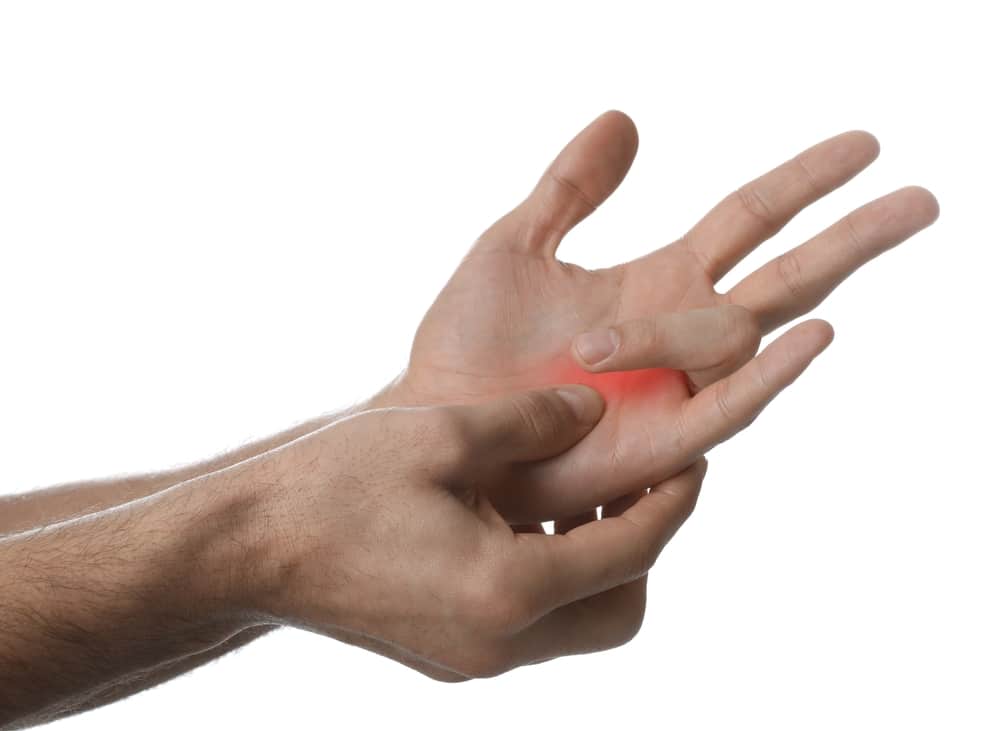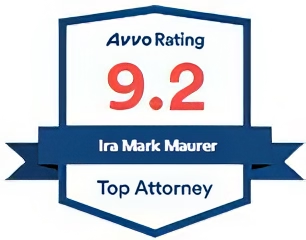Serving Wappingers Falls, Beacon, Lagrangeville, Brewster, Carmel & Nearby Areas Of Hudson Valley
Trigger finger, medically known as stenosing tenosynovitis, occurs when a finger becomes stuck in a bent position, as if squeezing a trigger. This condition can cause significant pain, stiffness, and snapping sensations during movement. Often arising from repetitive strain or underlying health issues, trigger finger can significantly impact daily life and work capabilities.
If you believe your musculoskeletal injury is linked to your workplace activities, you may be entitled to compensation. At the Maurer Law Firm, PLLC, personal injury attorney Ira Maurer specializes in cases like these. Our whole team is committed to helping you understand your rights and secure the relief you deserve.
What Are Symptoms Of Trigger Finger?

Symptoms of trigger finger may occur when any of the four fingers of the hand attempts to flex closed while gripping. Instead of a smooth, continual closure, the digit hesitates, then snaps closed. When attempting to extend the digit, a similar hesitation may occur before it "snaps" into full extension.
In severe cases, the digits must be manually brought into full extension or flexion. The closure is frequently associated with pain at the base of the digit on the palm of the hand. Triggering can also affect the thumb.
What Causes Trigger Finger?
Trigger finger is caused by local swelling from inflammation or scarring of the tendon sheath around the flexor tendons. These are tendons that normally pull the affected digit inward toward the palm (flexion).
Usually, trigger finger occurs as an isolated condition because of repetitive trauma. Sometimes, trigger finger is an associated condition resulting from an underlying illness that causes inflammation of tissues of the hand, such as rheumatoid arthritis. In fact, data presented at the 2005 American College of Rheumatology national meeting suggested that a majority of patients with rheumatoid arthritis have inflammation around the tendons of the palm of the hand that could develop into trigger finger.
What Is The Treatment For Trigger Finger?
Stretching, ice, and anti-inflammation treatments can be helpful. Oral anti-inflammatory medications that may be helpful include naproxen, ibuprofen, diclofenac, and others. The quickest and most effective treatment is a local cortisone injection into the tendon sheath around the affected tendon.
Most patients will respond positively to the cortisone injection, but this may only be a temporary response. When a trigger finger persists after two injections and is not responsive to the above treatments, surgical procedures to release the tendon sheath and/or remove the inflamed or scarred tissue are considered. Surgical intervention is usually a permanent cure for this condition.
Can I Get Disability For Trigger Finger?
If it can be established that your trigger finger is a result of your work duties, you may be entitled to workers’ compensation while in recovery. A majority of these injuries are treatable, either through splinting or surgery, and should not produce any lasting problems.
When left untreated, however, trigger finger may become permanent. In these cases, if all qualifications are met, you may qualify for ongoing disability insurance.
What Happens If You Leave Trigger Finger Untreated?

Untreated trigger finger may become permanent. The positioning of the stuck finger or thumb may become irreversible, resulting in chronic pain, reduced ability, and complications in completing daily tasks.
How Long Does It Take For Trigger Finger To Get Better?
Trigger finger typically resolves within a few weeks after treatment with a splint. Anti-inflammatory medications may also be needed during this time to help encourage healing. Under most circumstances, it is reasonable to expect trigger finger to resolve within six weeks.
Complicated cases may require surgical intervention. Recovery from surgery can take up to eight weeks, depending on the complexity of the case.
Can Trigger Finger Be A Work-Related Injury?
Trigger finger may be a result of repeated gripping and repetitive hand use, which are common in many workplaces. It may also be a result of carpal tunnel syndrome surgery, often necessitated by a workplace injury. In short: yes, trigger finger is typically a work-related injury.
What Kind Of Compensation Can I Receive If I Get Trigger Finger Through My Work?
In the state of New York, injured workers are entitled to ¾ of their weekly pay and compensation for all related medical expenses, up to and including travel expenses to get to and from doctor appointments.
If your workers’ compensation claim is successful, these payments will continue until your doctor finds you have reached maximum medical improvement, at which point you will return to work (in the same or a diminished capacity, depending on your injury) or look to disability insurance for continued care.
If you are not eligible for workers’ compensation, you may be able to seek compensation through a personal injury lawsuit for trigger finger. While a less common approach, filing suit may provide more significant compensation, particularly in cases where working will no longer be an option. The best way to learn if a workers’ comp claim or personal injury suit will best meet your needs is through a one-on-one consultation with an experienced trigger finger lawyer .
For more information about damages that may be available in your musculoskeletal injuries claim, please contact The Maurer Law Firm, PLLC, today at 845-896-5295 to discuss your case for free.
How a Personal Injury Lawyer at Maurer Law Can Help with Your Trigger Finger Case
Suffering from trigger finger can not only cause physical discomfort but also financial and emotional stress, particularly when it affects your ability to work. If your condition is related to your job activities or due to medical oversight, pursuing a legal claim may be necessary. Here's how the Maurer Law Firm can guide and support you through this process:

Case Evaluation
Mr. Maurer and our team conducts a thorough evaluation of your case, including the review of medical records, workplace reports, and any related evidence. This step is crucial to determine the viability of your claim and the best strategy to proceed.
Evidence Collection
Maurer Law’s legal team assists in gathering all necessary evidence to build a strong case. This includes medical documentation, employment records, and expert testimonies that link your condition directly to your workplace environment or medical treatment errors.
Claim Preparation and Filing
Mr. Maurer meticulously prepares and files the necessary legal documents to initiate your claim. He ensures that all filings are accurate and submitted within the statutory deadlines, protecting your rights throughout the legal process.
Negotiation with Insurers
Many personal injury cases are settled outside of court. Our experienced negotiators deal directly with insurers and opposing counsel to secure a compensation package that covers your medical expenses, lost wages, and pain and suffering, without the need for a trial.
Trial Representation:
If a fair settlement cannot be achieved, Mr. Maurer is prepared to take your case to court. We leverage our litigation experience to present a compelling case, aiming to achieve the best possible verdict in your favor.
No Fees Unless We Win:
We operate on a contingency fee basis, which means you don’t pay any attorney's fees unless we win your case. This approach allows you to pursue justice without financial risk.
Why You Should Choose The Maurer Law Firm for Trigger Finger
At the Maurer Law Firm, we are committed to advocating for individuals suffering from trigger finger due to workplace conditions or accidents. With a proven track record of successful settlements and verdicts, our team is equipped to handle the complexities of your case, ensuring the best possible outcome. We strive to provide each client with tailored advice and robust support throughout the legal process. Call us at 845-896-5295 for a free case evaluation consultation.




